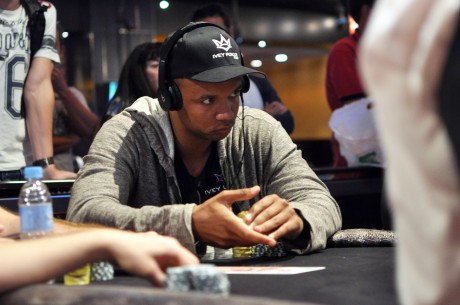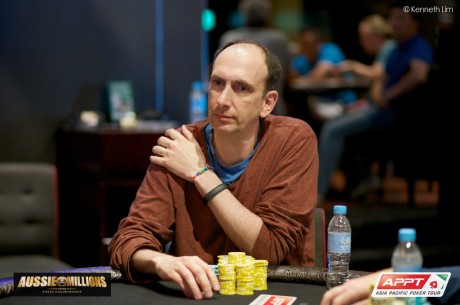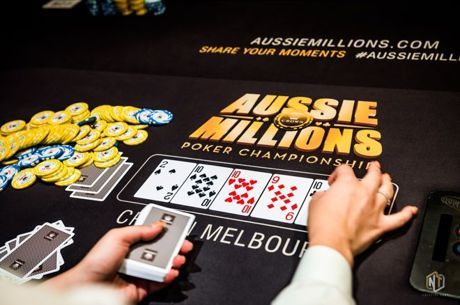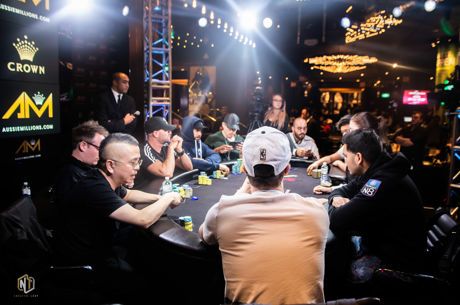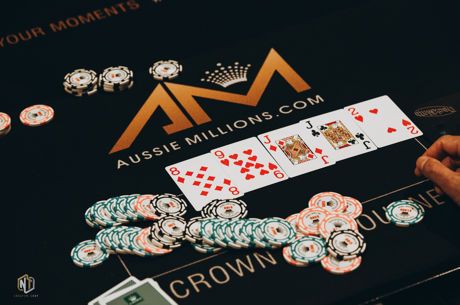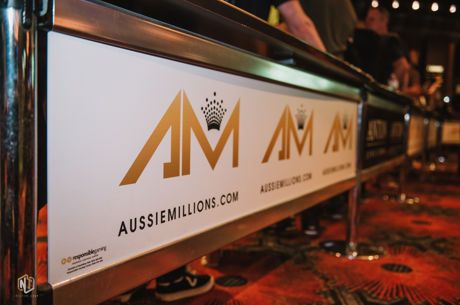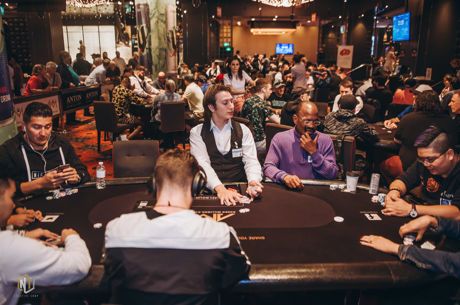The Most Influential Hands of the 2014 Aussie Millions
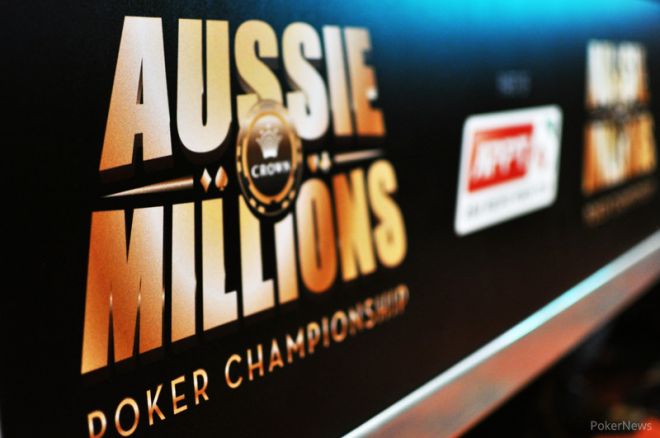
The 2014 Aussie Millions has come to an end, and what a tournament series it turned out to be. Both the $100,000 Challenge and $250,000 Challenge had record-breaking (and controversial) turnouts, while Ami Barer defeated a stacked final table in the Main Event to capture the title and AU$1,600,000 first-place prize.
There were intriguing storylines and game-changing hands in all three of the events, and we��ve decided to take a look back at a few. Below are three hands �� one from each tournament �� that we dare label as the ��most influential hands of the tournament.��
Timoshenko Goes from Short Stack to Victor in $100,000 Challenge
The 2014 Aussie Millions $100,000 Challenge was a bit of an anomaly. In the two previous years, the tournament attracted a modest 22 entries each, but this year it exploded as 39 unique players accounted for 37 reentries, bringing the total field up to 76 entries! That created a prize pool of AU$7,486,000, with AU$2,000,000 of that going to first place.
Day 2 of the tournament saw 29 players return from Day 1, plus 10 late registrants who each started with the 100,000-chip starting stack. Meanwhile, Yevgeniy Timoshenko, who purportedly wanted to unregister from the tournament on Day 1 after finding out there was a 30-second ��shot clock�� but was unable to do so, began Day 2 as the short stack with just 64,500. Despite the disadvantage, Timoshenko went on to win the tournament.
That was due in no small part to a lucky hand during three-handed play between him, Mike ��Timex�� McDonald, and Erik Seidel. It happened in Level 21 (40,000/80,000/10,000) when Timosheko was on the short stack. Here��s a look at the hand from our live blog:
Yevgeniy Timoshenko opened the action with a raise to 170,000 from the button. Erik Seidel reraised to 440,000 from the small blind, and then Mike McDonald made the call from the big blind. Timoshenko then moved all in for around 1,400,000, and Seidel called before McDonald folded. Turn 'em up, boys.
Seidel tabled the A?Q? and was up against the 10?10? for Timoshenko.
On the flop, Seidel took the lead when the A?Q?2? fell to give him two pair. The turn, though, smashed Timoshenko with the 10? peeling off to put him back in the lead with trips. The river completed the board with the 8?.
Timoshenko doubled to over 3,200,000, while Seidel was knocked all the way back down to 300,000.
Seidel was eliminated a short time later in third place, and after a back-and-forth heads-up match, Timoshenko eventually sealed the deal against McDonald. Ironically Timoshenko, who is notorious for taking his time, won the very ��shot clock�� tournament he was thinking about unregistering from, leading Matt Glantz to take a jab at him from a world away:
If @JovialGent can win a tournament with a 30 second shot clock all it does is prove he has been wasting our time for years now. Gl Yev.
— Matt Glantz (@MattGlantz)
For a full recap of Tmoshenko's win, click here.
Balsiger Destined for Third Place Once Again
With a dozen players remaining in the 668-player strong Main Event, 2012 World Series of Poker third-place finisher Jake Balsiger joked that he would notch his first six-figure score as long as he didn't finish in the top two (remember he earned seven-figures for his WSOP run). He tweeted, "12 people left, finally got my first six figure score as long as I don't mess it up by getting first or second."
PokerNews had actually been following Balsiger since Day 1, and he periodically updated us on his progress. Have a listen:
Balsiger was running and playing well, but unfortunately his joke became a reality when he ended up busting in third place. Making matters worse, it was the result of a bad beat. It happened in Level 30 (60,000/120,000/10,000), and here's what happened according to our live blog:
The United States will have to wait at least another year to bring home the Aussie Millions Main Event title, as Jake Balsiger exited in third place at the hands of Ami Barer.
Balsiger min-raised to 240,000 on the button, Barer three-bet to what looked like 575,000 from the small blind, and the American four-bet to 1.175 million. Barer five-bet ripped, moving all in for effectively five million or so, and Balsiger snap-called.
Balsiger: K?K?
Barer: A?10?Balsiger was in great shape to double up and take the chip lead, but his odds of winning the hand dipped when the dealer fanned 9?8?7?, giving Barer eight extra outs to make a straight.
"Always a sweat!" someone yelled from the rail.
The turn was the 5?, bringing a third club, and it reduced Barer's outs to eight because Balsiger held the only club.
The 6? completed the board, giving both players a straight, but Barer's ten gave him the winning hand and eliminated Balsiger in third place.
With that massive hand, Barer went into heads-up play with a 3-1 chip lead against Sorel Mizzi.
Indeed, Barer began heads-up play with a big chip lead and used it to clinch the victory. For a full recap, click here.
Ivey's Run Begins
Throughout the beginning portion of the LK Boutique $250,000 Challenge final table, Phil Ivey sat in the bottom half of the chip counts. Maybe his cards weren't being kind to him, or maybe he was too busy playing props with Tom Dwan, but either way Ivey didn't get too involved in the action. Ivey was quiet enough that it seemed he was just biding his time to make it to the money and then start moving his chips to either bust with a solid payday or move up the latter quickly.
Well once the bubble did burst, that's when Ivey's run began.
Roughly two hours after Erik Seidel went home in seventh place, Ivey sent Fabian Quoss to the rail in fifth place. In doing so, Ivey moved into the chip lead with four players remaining, and that's really when he seemed to turn it on. Here's how it happened straight from our live blog, during Level 16 with the blinds at 40,000/80,000/10,000:
Fabian Quoss raised to 175,000 on the button, Phil Ivey three-bet to 530,000 out of the small blind, and Quoss tanked for a bit before moving all in for an additional 880,000. Ivey flashed a smile, then called.
Quoss: 8?8?
Ivey: K?Q?The German remained ahead after the flop (5?7?5?) and the turn (A?), but the K? spiked on the river to give Ivey a pair of kings.
Ivey shipped the pot, while Quoss earned AU$800,000 for fifth place.
It was at that point, that the possibility of Ivey winning the tournament was at the highest it had been. Wouldn't you know it, Ivey did go on to take the title and earn the largest single score of his poker tournament career by pocketing AU$4,000,000. You can read the full recap from Ivey's victory by clicking here.
Get all the latest PokerNews updates on your social media outlets. Follow us on Twitter and find us both Facebook and Google+!


